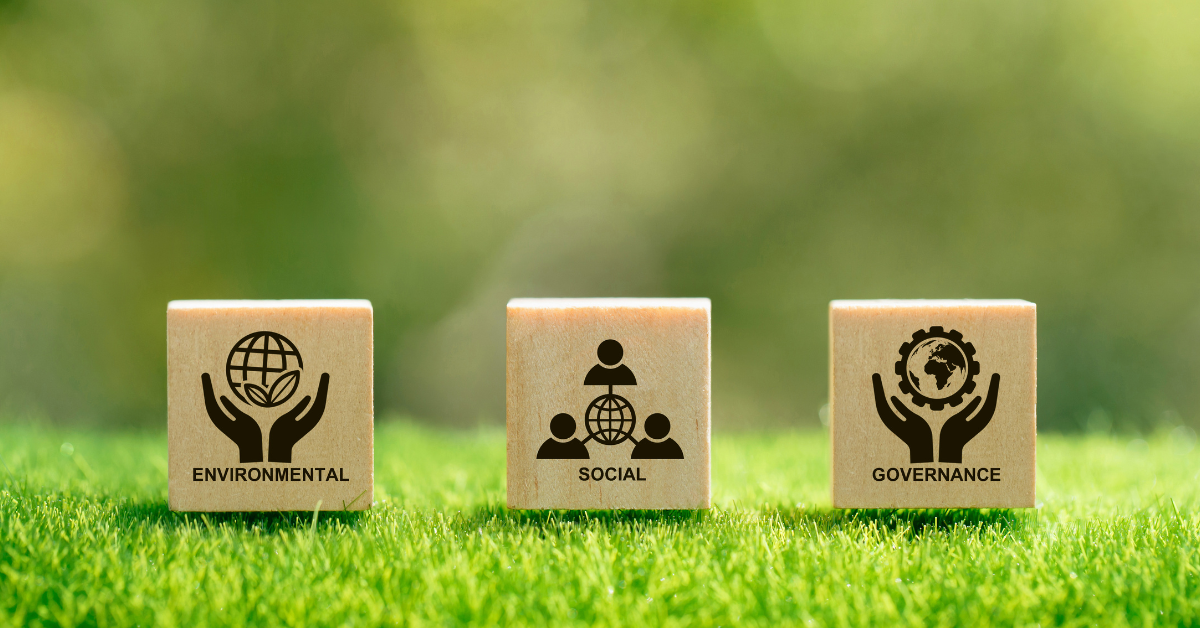
In the early days of sustainability, many companies viewed it as a regulatory compliance issue. Businesses would do the minimum required to meet environmental standards and then move on, without giving much thought to how sustainability might actually benefit their operations.
However, as consumers, investors, and other stakeholders have become more environmentally conscious, this approach is no longer enough. Today, leading companies are recognizing that sustainability can play a strategic role as a source of competitive advantage. By adopting sustainable practices, businesses can reduce costs, enhance their brand image, and even create new revenue streams.
Sustainability strategy for business
A study made by EY Parthenon has analysed the evolution of the approach to sustainability in corporate strategy, finding the drivers of change for the rise of sustainability as a key component for business strategy can be linked to 4 key stakeholders: investors, consumers, industry peers and governments.
- Investors
The central role of sustainability in capital markets is linked to the analysis of three key metrics: environmental, social, and governance (ESG). The weight of sustainability in the financial sector has led to the rise of ESG Rating and analytics platforms, such as Sustainalytics, Refinitiv, and Bloomberg.
The study shows that 90% of global institutional investors revise investments if companies do not at least consider ESG criteria within their business model.
- Consumers
The demand for sustainable products is increasing as customers become aware of the implication of climate change and the damage to the environment and human health.
The willingness to pay more in order to buy a product that is “sustainable” and the will to change their habits in order to tackle emissions and resource use is now driving buying decisions. A study made by ICCR Institute reports that revenues from sustainable products are growing at about six times the rate of other products.
Another finding states that by 2025, consumers will consistently prefer products or services that are less damaging to the environment, human health, and society.
This trend is significantly driven by young generations who more than others understand the impact that climate change is going to have on their lives and are willing to pay the green premium for environmentally friendly products.
- Industry peers
The momentum behind the sustainability imperative is driven by a growing recognition within the global business community that a company's purpose transcends mere profit, and that its success is intertwined with the well-being of other firms, organizations, and individuals in the wider ecosystems in which it operates.
An increasing number of businesses are embracing sustainability as a central pillar of their corporate strategy, not only because of the financial benefits that come with sustainable practices, but also because employees now expect their work to be meaningful and purposeful. As a result, these companies are applying considerable pressure on other businesses to follow suit, creating a ripple effect across the business world.
- Governments
As we are reaching the target year for the achievement of global climate objectives, the pressure is mounting from governments around the world to hold companies accountable for their impacts. The pressure from institutions has manifested through regulations and taxes on emissions and environmental performance. With the many instruments created by institutions such as the EU (e.g. Taxonomy, CSRD, ETS, Carbon border adjustment mechanism) the price to pay for not being sustainable is going to be high for companies that don’t comply with standards and regulations.
Sustainability strategy for competitiveness
When it comes to corporate strategy, sustainability is a key success factor.
The implementation of a sustainability strategy is linked to different benefits for a company.
- Brand reputation
As generations pass, consumers are becoming more environmentally conscious and orient their decision considering ethical reasons.
e on sales growth for product that claim to be environmentally and socially responsible has shown that product making ESG-related claims averaged 28% cumulative growth over a 5 year period, while products who made no ESG claims averaged 20%.
- Talent attraction and meeting consumers demands
The gain in brand reputation not only affects economic performances, but it also attracts talents and consumers.
Millennial and Generation Z are going to become the largest share of workforce and consumers in the next decade and to be aligned with their needs and values is going to become a strategic necessity for firms.
- Increase Efficiency
As found in a McKinsey study, increasing operation efficiency can help to reduce a company’s operating expenses. Changing the energy mix, enhancing circularity models and improving manufacturing processes in order to be more efficient leads to better financial performance, highlighting the link between a company’s sustainability performance and its financial performance.
Results of a pervasive strategy
Sustainability strategy has evolved from a mere compliance issue to a key driver of competitiveness for businesses.
Companies that are serious about sustainability need to take a holistic approach, integrating environmental, social, and governance considerations into all aspects of their operations.
They also need to be willing to collaborate with others and invest in sustainable solutions, even if it requires short-term sacrifices. By doing so, companies can create long-term value for their stakeholders, while also contributing to a more sustainable future for all.
Note
1World Bank, https://www.worldbank.org/en/topic/smefinance
2 European Commission, https://ec.europa.eu/environment/sme/index_en.htm
3 OECD (2018), Environmental Policy Toolkit for SME Greening in EU Eastern Partnership Countries, OECD Green Growth Studies, OECD Publishing, Paris, https://doi.org/10.1787/9789264293199-en



